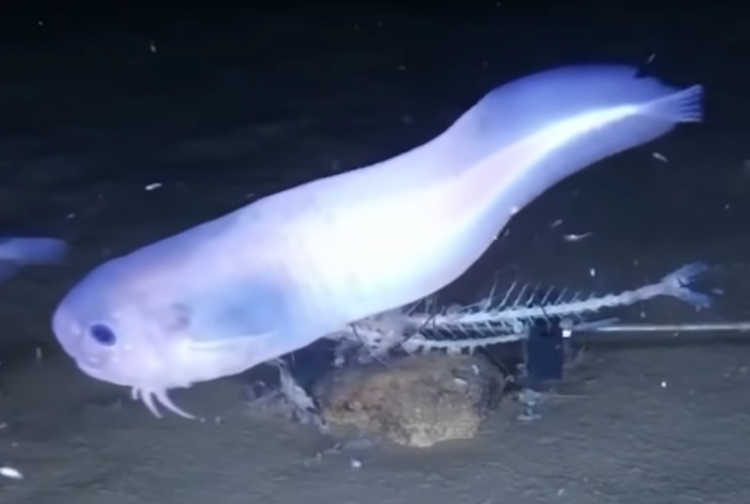Scientists at Newcastle University recently discovered three new species of deep-sea snailfish that are so well-adapted to their extreme environment that they would “rapidly melt” if brought to the surface.
The squishy fish were discovered during an international expedition to explore the depths of the Atacama Trench, one of the deepest parts of the Pacific Ocean, located near the coast of Peru. Researchers lowered special cameras to a depth of approximately 7,500 meters, where temperatures are just above freezing and pressures are fire higher than any human could survive. Despite these extreme conditions, the bottom of the Atacama Trench was teeming with life, including three new fish species currently known as the pink, purple and blue Atacama snailfish.

Photo: Newcastle University video screengrab
“There is something about the snailfish (fish of the family Liparidae) that allows them to adapt to living very deep. Beyond the reach of other fish they are free of competitors and predators. As the footage clearly shows, there are lots of invertebrate prey down there, and the snailfish are the top predator. They seem to be quite active and look very well-fed,” Thomas Linley, a researcher at Newcastle University, said in a statement.
What really makes these new fish species special is their ability to thrive in such harsh conditions. The hardest parts of their body are the teeth and the tiny bones in their inner ears, with the rest being a squishy, gelatinous mass that can withstand the immense pressures of the deep sea. But while their bodies are perfectly designed for these conditions, scientists say that they would not fare well if brought to the surface.
“Without the extreme pressure and cold to support their bodies, they are extremely fragile and melt rapidly when brought to the surface,” Thomas Linley said.
Scientists even managed to capture a specimen of these new species using a special trap, but sadly, it did not survive the trip to the surface. Still, it’s body was preserved in good enough condition and it is currently being studied.






